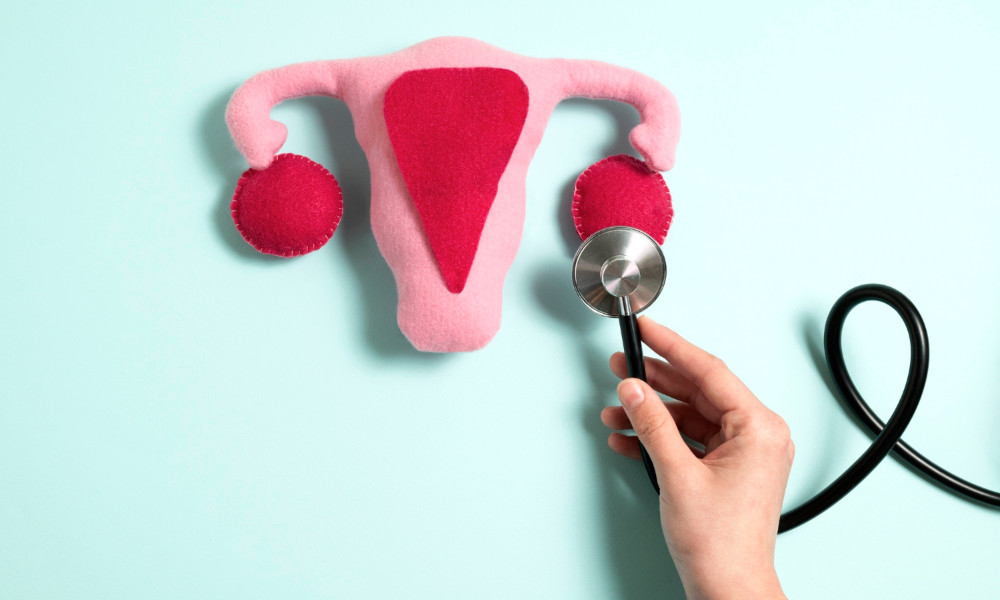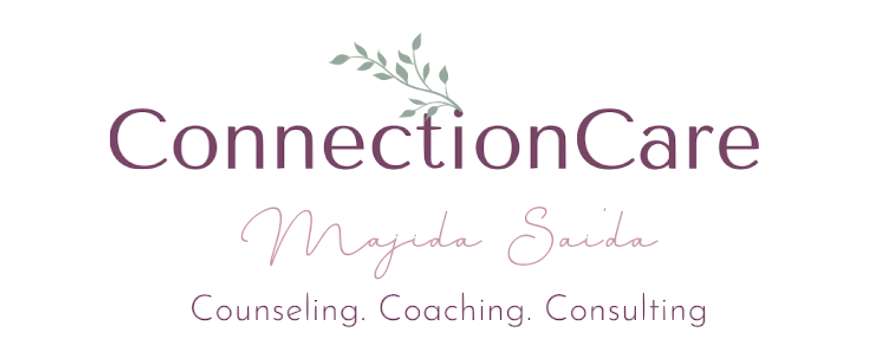Understanding your fertility is critical to taking charge of your reproductive health. Fertility awareness is a natural, safe, and empowering method of contraceptive care and family planning that involves tracking your menstrual cycle to identify your fertile and infertile days. With fertility awareness, you can not only achieve or avoid pregnancy but also gain a deeper understanding of your reproductive health and menstrual cycle.
This blog will explore the power of knowledge and the importance of medical autonomy and sexual sovereignty in reproductive health. By embracing fertility awareness and understanding your body, you can take charge of your fertility and make informed decisions about your reproductive health. So, let’s dive in and explore the world of fertility awareness!
The Power of Knowledge
Understanding reproductive health and autonomy is crucial for empowerment. The more knowledgeable we are, the more agency we have over our lives. Learning about your fertility cycle through fertility awareness provides essential insights into your body, enabling you to make well-informed decisions about your reproductive health. Knowing your fertile periods helps prevent unintended pregnancies, plan for pregnancy when desired, and identify potential health issues.
While hormonal birth control is an effective method to prevent pregnancy, it can come with side effects that may affect your overall health and well-being. Sole reliance on hormonal methods might also prevent you from noticing important signals about your fertility and general health. Fertility awareness presents a natural, non-invasive alternative that enhances your control over your reproductive health.
By tracking fertility signs like basal body temperature, cervical fluid, and menstrual cycle length, you can develop a deeper understanding of your body’s unique patterns. This knowledge empowers you to make informed choices about your reproductive health and actively participate in your medical care.
If you’re looking for a natural method to understand and manage your fertility and reproductive health, fertility awareness might be the solution. This approach not only promotes medical autonomy but also empowers you with sexual sovereignty. By embracing fertility awareness, you can support informed decision-making and take charge of your reproductive choices, enhancing both your autonomy and well-being.
Fertility Awareness for Medical Agency

As individuals, having agency in managing our own health is crucial. Fertility awareness education serves as a potent tool for enhancing medical autonomy and informed decision-making in reproductive health.
Fertility awareness enables individuals to comprehend their unique fertility cycles, providing deeper insights into their overall reproductive well-being. By monitoring signs such as cervical mucus, basal body temperature, and other fertility indicators, individuals can detect patterns and irregularities in their menstrual cycles. Recognizing these patterns or anomalies can be instrumental in identifying potential reproductive issues, such as endometriosis or polycystic ovary syndrome (PCOS). This knowledge becomes invaluable when working with healthcare providers to diagnose and manage these conditions.
Moreover, fertility awareness offers a viable alternative to hormonal contraceptives, which may come with various side effects and health implications. This method allows individuals to choose contraception options that are effective and align with their personal values and lifestyle preferences.
Ultimately, fertility awareness education not only equips individuals with the knowledge to actively participate in their reproductive health care but also supports them in making well-informed decisions that respect their health needs and personal convictions.
Benefits of Learning Fertility Awareness for Medical Agency
- Fertility awareness allows individuals to understand and track their natural menstrual cycles, providing valuable information for reproductive health and family planning decisions.
- By tracking their menstrual cycles, individuals can more easily identify irregularities or potential health issues and seek appropriate medical attention.
- Fertility awareness can help individuals better communicate with healthcare providers about their reproductive health, making informed decisions about medical interventions.
- Fertility awareness provides an alternative method of birth control for those who may experience adverse side effects or complications from hormonal contraceptives.
- Individuals with conditions like endometriosis or polycystic ovary syndrome (PCOS) can benefit from using fertility awareness to keep track of their symptoms and manage their condition.
Overall, fertility awareness empowers individuals to take control of their reproductive health, make informed medical decisions, and advocate for themselves in healthcare settings.
By empowering individuals to take control of their reproductive health and make informed decisions about medical care, fertility awareness serves as a valuable tool for achieving greater medical autonomy. However, the benefits of fertility awareness extend beyond medical decision-making, as it also supports sexual sovereignty. Let’s explore how understanding fertility can enhance sexual intimacy and communication in our next section.
Fertility Awareness & Sexual Sovereignty
Fertility awareness empowers you to achieve sexual sovereignty by providing a deep understanding of your own body and fertility. This knowledge is crucial for making informed decisions about your sexual health and family planning.
Moreover, fertility awareness can significantly enhance intimacy and communication with your partner. By both partners understanding the menstrual cycle and fertile windows, you can strategically plan sexual activities. This shared knowledge fosters deeper understanding and responsiveness to each other’s needs, enhancing the overall sexual experience.
Additionally, fertility awareness serves as an early detection tool for reproductive health issues. Symptoms like irregular periods and abnormal bleeding can indicate underlying health problems. Regular monitoring of your menstrual cycle and cervical mucus changes enables you to spot any irregularities early, leading to timely medical intervention and improved health outcomes.
Ultimately, fertility awareness not only informs you about your body but also empowers you to align your reproductive choices with your personal goals. This autonomy enhances your control over your reproductive health, reinforcing your sexual sovereignty and enabling you to nurture a healthier and more fulfilling intimate relationship.
Benefits of Learning Fertility Awareness for Sexual Sovereignty
- It enables individuals to gain a better comprehension of their own reproductive well-being.
- It provides the ability to track menstrual cycles and identify potential health issues
- Can enhance communication and intimacy between partners
- Allows for informed decisions about contraception and family planning
- Encourages active participation in one’s own sexual health and decision-making
- Supports a sense of bodily autonomy and agency.
As you begin to explore the world of fertility awareness and sexual sovereignty, you may encounter some common misconceptions that can make it challenging to fully embrace this approach to reproductive health. In the next section, we’ll address some of these challenges head-on and provide resources and support to help you on your journey.
Overcoming Challenges

As with any decision related to reproductive health, choosing to practice fertility awareness can come with its own set of challenges. It’s important to address common misconceptions to support you in making order informed choices and feel empowered in your decisions.
One common misconception about fertility awareness is that it’s unreliable or not as effective as other forms of birth control. However, when practiced correctly and consistently, fertility awareness can be just as effective as hormonal methods. It’s essential to educate yourself on the various techniques and seek guidance from a healthcare professional qualified to support you in contraceptive care options or certified fertility awareness educator.
Another challenge can be overcoming societal pressure and stigma around reproductive choices. Everyone has the right to make choices about their reproductive health. Fertility awareness is critical to informed decision-making. It’s essential to have open and honest communication with partners and loved ones about your decisions and to seek out supportive communities.
For those interested in learning more about fertility awareness, there are many resources and support systems available. As a certified fertility awareness educator, I can provide guidance and support, so don’t be shy to reach out.
By addressing these challenges and arming yourself with knowledge and support, you can feel confident and empowered in your decision to practice fertility awareness.
Key Points & Conclusion
While there may be challenges in learning and adopting fertility awareness methods, it’s important to remember that the benefits of reproductive health knowledge and autonomy are numerous. By taking charge of your fertility, you can make informed decisions about your body and sexual health, leading to increased confidence, intimacy, and empowerment. Let’s close out by summarizing the main topics covered in this blog.
Key Points
- Fertility awareness is a method of tracking your menstrual cycle and understanding your fertility in order to make informed decisions about family planning and reproductive health.
- It’s essential to understand your fertility to make informed choices about your reproductive health and family planning. This knowledge can help you take charge of your health and make decisions about which reproductive health care options are right for you.
- Fertility awareness can serve as a natural alternative to hormonal birth control methods that has no side effects.
- Fertility awareness can be used to support in diagnosing and managing reproductive health issues, such as PCOS and endometriosis.
- Fertility awareness can enhance sexual intimacy and communication by promoting a deeper understanding of one’s own body and fertility.
- Common misconceptions about fertility awareness, such as its effectiveness and difficulty, can be addressed through education and resources.
- Overcoming societal pressure and stigma around reproductive choices can be challenging, but seeking support and resources can help.
- Fertility awareness can be a valuable tool for individuals seeking to take control of their reproductive health and achieve greater medical autonomy and sexual sovereignty.
Conclusion
In this blog post, we discussed the power of knowledge when it comes to understanding your fertility through fertility awareness. By tracking your menstrual cycle and observing the natural signs of your body, you can take control of your reproductive health, enhance your medical autonomy, and exercise your sexual sovereignty.
Fertility awareness can offer several benefits, such as allowing you to make informed decisions about your reproductive health and family planning. It also provides a natural and non-invasive way of diagnosing and managing reproductive health issues.
Despite the many advantages of fertility awareness, it can be challenging to overcome societal pressure and stigma around reproductive choices, and there may be misconceptions about its effectiveness. However, there are many resources and support available to those interested in exploring fertility awareness as a tool for empowerment and self-knowledge.
In conclusion, we encourage you to take control of your reproductive health and consider fertility awareness as a means of doing so. With knowledge comes empowerment, and understanding your fertility can provide a new level of autonomy and confidence in your medical decisions and sexual choices.
About Majida

Sources
- Berglund Scherwitzl, E., Gemzell Danielsson, K., Sellberg, J. A., & Scherwitzl, R. (2016). Fertility awareness-based mobile application for contraception. The European Journal of Contraception & Reproductive Health Care, 21(3), 234–241. https://doi.org/10.3109/13625187.2016.1154143
- Briden, L. (2018). Period Repair Manual: Natural Treatment for better hormones and better periods. Createspace Independent Publishing Platform.
- Duane, M., Stanford, J. B., Porucznik, C. A., & Vigil, P. (2022). Fertility awareness-based methods for women’s health and Family Planning. Frontiers in Medicine, 9. https://doi.org/10.3389/fmed.2022.858977
- Harper, J. C., Hammarberg, K., Simopoulou, M., Koert, E., Pedro, J., Massin, N., Fincham, A., Balen, A., Bagocsi, T., Balaban, B., Balen, A., Blanchet, V., Bodin, M., Boivin, J., Carvalho, A., Delbaere, I., De Vos, M., Dirican, K., de Mouzon, J., Ziebe, S. (2021). The International Fertility Education Initiative: Research and action to improve fertility awareness. Human Reproduction Open, 2021(4). https://doi.org/10.1093/hropen/hoab031
- Hendrickson-Jack, L. (2019). The fifth vital sign: Master your cycles & optimize your fertility. Fertility Friday Publishing Inc.
- Mena, G. P., & McLindon, L. A. (2023). Fertility awareness education improves fertility cycle knowledge and may reduce time-to-pregnancy in subfertile women. Human Fertility, 26(2), 405–412. https://doi.org/10.1080/14647273.2023.2214952
- Peragallo Urrutia, R., Polis, C. B., Jensen, E. T., Greene, M. E., Kennedy, E., & Stanford, J. B. (2018). Effectiveness of fertility awareness–based methods for pregnancy prevention. Obstetrics & Gynecology, 132(3), 591–604. https://doi.org/10.1097/aog.0000000000002784
- Polis, C. B., Otupiri, E., Bell, S. O., & Larsen-Reindorf, R. (2021). Use of fertility awareness-based methods for pregnancy prevention among Ghanaian women: A Nationally Representative Cross-sectional survey. Global Health: Science and Practice, 9(2), 318–331. https://doi.org/10.9745/ghsp-d-20-00601
- Siegel, D. R., Sheeder, J., & Polotsky, A. J. (2021). Racial and ethnic disparities in fertility awareness among reproductive-aged women. Women’s Health Reports, 2(1), 347–354. https://doi.org/10.1089/whr.2021.0034
- Singer, K. (2004). The Garden of Fertility: A Guide to charting your fertility signals to prevent or achieve pregnancy – naturally – and to gauge your reproductive health. Avery.
- Stachowska, A., Kicińska, A. M., & Wierzba, T. H. (2022). The history of Fertility Awareness Methods. Kwartalnik Naukowy Fides et Ratio, 3(51), 9–19. https://doi.org/10.34766/fetr.v3i51.1093
- Vitti, A. (2014). Womancode: Perfect your cycle, amplify your fertility, supercharge your sex drive, and become a power source. HarperOne.
- Weschler, T. (2015). Taking Charge of Your Fertility: The Definitive Guide to Natural Birth Control, Pregnancy Achievement, and Reproductive Health (20th Anniversary Edition). William Morrow Paperbacks.
Disclaimer:
The information provided on this blog is for educational and informational purposes only and is not intended as a substitute for professional medical advice, diagnosis, or treatment. Always seek the advice of your physician or other qualified health provider with any questions you may have regarding a medical condition. The content on this blog is not meant to replace professional medical advice or to be used to prevent, diagnose, or treat any disease or illness. Reliance on any information provided by this blog is solely at your own risk.












